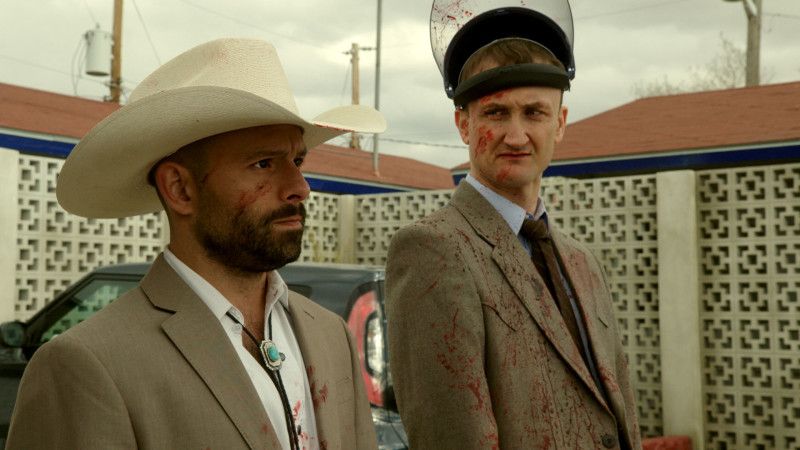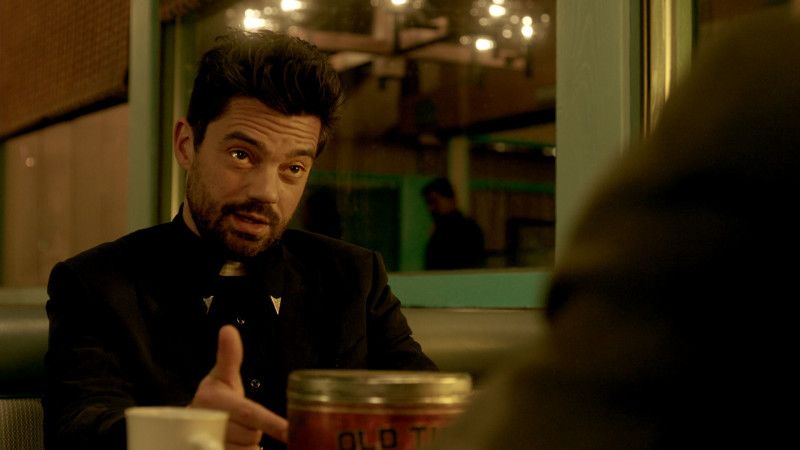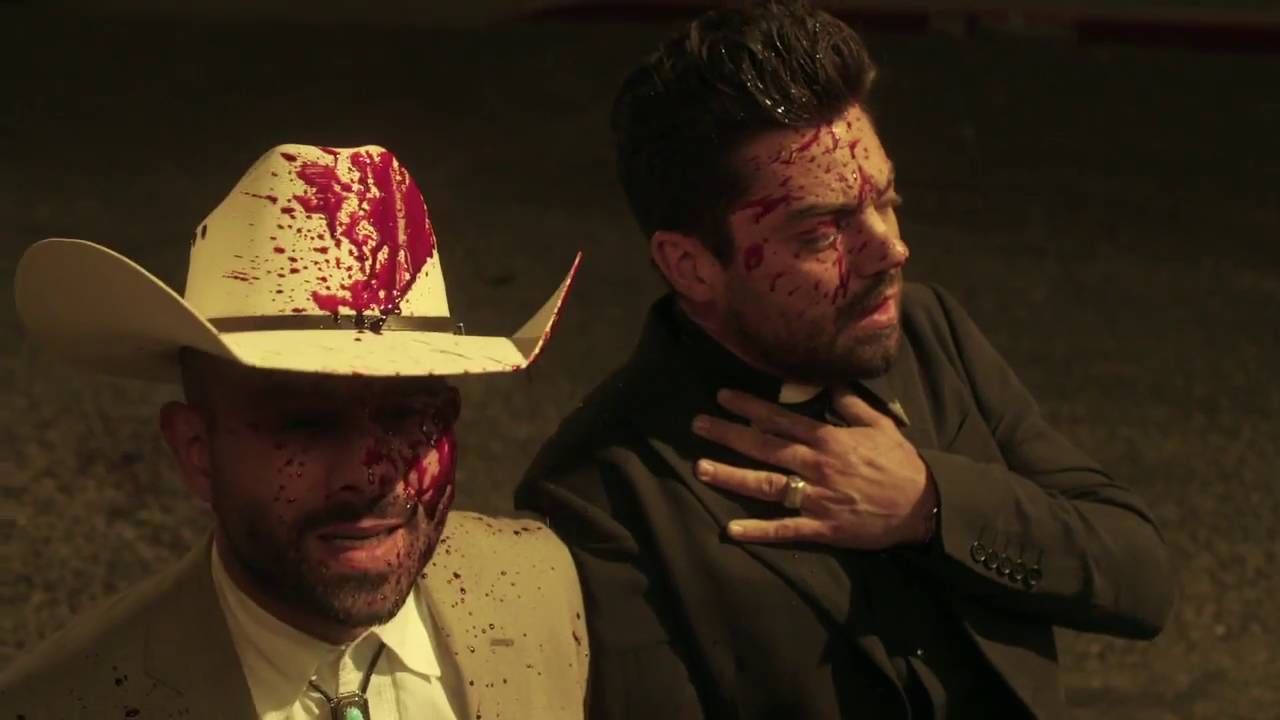The revelation that Jesse's almighty voice can lead to horrible things isn't really a revelation at all. So far during "Preacher's" run on AMC, it's already caused a man to cut out his own heart and another man to go on a shooting spree. The angels DeBlanc and Fiore warn him of its power, as does Cassidy. And yet the wind still gets taken out of you when it sends poor Eugene to the underworld in the climax of "Sundowner."
Perhaps it's because Eugene's served as somewhat of the moral center to the show. He certainly has his demons, but he also has genuine remorse for his actions, and has spent the entirety of "Preacher" just trying to be good, even to his misanthropic bully of a father. Unlike Jesse, he's a character concerned with reaching salvation the real way; the hard way; the way that involves actually confronting the darkest aspects of one's personality as opposed to just putting a band-aid on every transgression. It's telling that, out of all the people who tell the preacher not to use the voice -- actually a being named Genesis that sprung from an unholy union between a demon and and angel, as we find out tonight -- Eugene's the only one that gets under his skin. That's because he knows the teenager is right. He doesn't want to hear it. He doesn't want to hear that Eugene's such a good person, he can't even enjoy some classmates being nice to him because he knows he hasn't earned his newfound forgiveness. And as a result, Jesse screams at him in his Genesis voice for him to "Go to Hell."
Although Jesse shows immediate panic and regret, it's a move that threatens to push him from antihero to full-on villain -- and that's a good thing. Do I think a show about Jesse simply acting horrible would be worth anyone's time? Of course not. But I do respect a series that holds its protagonist accountable, that puts him and others around him through an emotional ringer that can lead to actual change. Jesse can't embark on his central quest from the comics (no spoilers on what that is here) until he resolves some things within himself. Hopefully, one of those resolutions will involve confronting Satan and saving Eugene. And if the boy's already a goner, what better catalyst for Jesse to get his act together? At the same time, I can't bear to think that such a sympathetic character would be dead so early.
While it was hard to think of much else once the credits started rolling -- Eugene's disappearance really does hit you like a ton of bricks -- but "Sundowner" is filled with other moments that also rank among "Preacher's" strongest, from Tulip confronting Emily about her (nonexistent) romance with Jesse to actually bonding with her. So far, the show has mostly depicted Tulip as badass, hurt, and angry, and as gamely as Ruth Negga pulls off those dimensions of her character, it's refreshing to see her just be friendly with someone. Her brief interaction with Cassidy also worked to load their eventual road trip with all sorts of tension. There's now a secret between them, one that's guaranteed to result in a true Bermuda love triangle that didn't happen in the comics until much later.
But let's face it: the other bona fide standout moment of "Sundowner" is that opening brawl. Like the church fight and Cassidy's introduction before it, it gains equal mileage out of crisp, inventive shots (we view much of the carnage through a bullet hole in the wall) and a morbid sense of humor. Since each of the angels -- Fiore, DeBlanc, and the Seraphim they're battling make three -- automatically regenerates when they die, the room of the titular motel soon piles up with dead bodies -- some dismembered, some bludgeoned, and some riddled with bullets. Despite being a departure from the comic, the pitch-black ultra-violence makes it feel right out of Garth Ennis and Steve Dillon's pages.
That's been the beauty of AMC's "Preacher" all along. Sure, the events take their sweet time to unfold, but the payoffs are as satisfying as anything laid to page by Vertigo. And sometimes, the pathos even gets expanded, which makes Eugene's disappearance all the more heartbreaking. He never got sent to Hell in the comics, but if he had, I'm not sure I would be as concerned for him as I am here.



